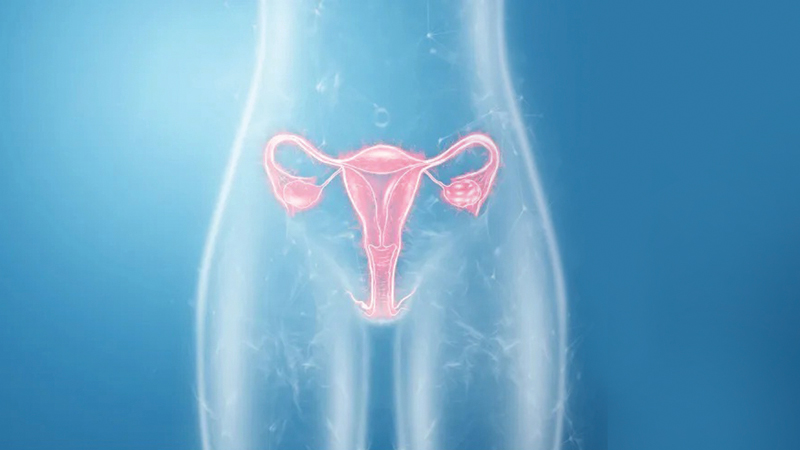 Following the celebration of Women’s International Day recently, with its focus on the role of women as wives, mothers, childminders and educators the Sunday Observer spoke to the Professor in Paediatric Neurology and Honorary Consultant Paediatric Neurologist University of Sri Jayewardenepura/Teaching Hospital Colombo South, Dr. Saraji Wijesekara who has been in the vanguard of child development and served as former President of the Sri Lanka Association for Childhood Development (SLACD) on the significance of this year’s theme of counting and investing in women for Lankan women and their female offspring in particular and its beneficial impacts of reducing the currently disturbing upward spiral in Reproductive health related problems in our country in the past decade or so.
Following the celebration of Women’s International Day recently, with its focus on the role of women as wives, mothers, childminders and educators the Sunday Observer spoke to the Professor in Paediatric Neurology and Honorary Consultant Paediatric Neurologist University of Sri Jayewardenepura/Teaching Hospital Colombo South, Dr. Saraji Wijesekara who has been in the vanguard of child development and served as former President of the Sri Lanka Association for Childhood Development (SLACD) on the significance of this year’s theme of counting and investing in women for Lankan women and their female offspring in particular and its beneficial impacts of reducing the currently disturbing upward spiral in Reproductive health related problems in our country in the past decade or so.
Excerpts.
Q: Women across the world recently celebrated yet another Women’s International Day with their focus mainly on ‘Invest in women: Accelerate progress.’ What is the reason for celebrating this day and what special benefits does it have for women globally and in Sri Lanka?

Dr. Saraji Wijesekara
A: The world faces many challenges including political, geological and rise in poverty levels. These challenges could be addressed by empowering women. Investing in women helps/facilitates the transition of a healthier, safer, and more equal world for all.
Q: So tell us, in what way does the theme “Count her in: Invest in her” contribute to helping women in all walks of life and in all occupations to achieve complete equality and access to equal opportunities to better themselves, which is your goal?
A: If current trends continue, more than 342 million women and girls could be living in extreme poverty by 2030. To ensure women’s needs and priorities are considered, governments must prioritise gender-responsive financing. The contributions that the women make to the economy should be valued and recognised worldwide through paid and unpaid care work. Women spend around three times more time on unpaid care work than men and if these activities were assigned a monetary value they would account for more than 40 percent of GDP.
Q: List some of the main obstacles that women face in achieving these goals.
A: Unequal pay, racial injustice, gender-based violence, inadequate healthcare, threats to reproductive rights, lack of education, food insecurity, climate change, unequal political representation, discriminatory social institutions,threats during migration,discrimination based on disability,poor mental health, online harassmentand and unpaid labour.
Q: Do they vary from district to district?
A: Some of the obstacles are varying from region and district-wise.
Q: In what way does social stigma which continues to persist in a few pockets of our country prevent girls and women from depressed communities to rise above their stations?
A: The feelings of shame, hopelessness, isolation and reluctance to ask for help, lack of understanding by family, friends or others. The situation is worse in some parts of the country where it is a major problem with certain ethnic groups in particular.
Q: So what priority has Sri Lankan health officials and the Health Ministry given to this important issue?
A: Through family planning programs, antenatal, delivery and post-natal services, prevention and management programs for reproductive tract infections (including sexually transmitted diseases and HIV/AIDS) and prevention of abortion.
Q: How does it benefit women and girls in particular?
A: Knowledge in Antenatal care in pregnancy not only improves the outcome of the newborn, but also the pregnant and the nursing mother. Awareness of sexually transmitted diseases and HIV/AIDS would definitely improve the ill health of mothers, babies and the community at large. Also facilities to detect STD’s early and instituting treatment at the government healthcare centres help prevent transmission. The national school curriculum provides knowledge on STD’s at a younger age would help the youngsters practice better reproductive health practices.
Q: I understand that some studies on this subject done by the Family Planning Association some time ago highlighted the fact that in most instances many teenagers and even young brides were ignorant about basic facts about RH. Has the situation changed now with more exposure on the subject via mass media like the television, internet?
A: Yes. Knowledge on reproductive health is an important basic aspect in health care. Since knowledge regarding the topic may not be possible through their closest adult relatives as it is something that adults feel embarrassed to discuss with the youngsters, social media has served as an alternative option, though not always with positive outcomes.
Q: What are the myths about reproductive health in our Lankan society that you see currently swirling around especially among young people and how do they affect them physically and psychologically?
A: Majority of Sri Lankan youth have misconceptions and fears about normal processes such as menstruation, nocturnal emissions, and masturbation. There are many myths around family planning methods as well such as IUD’s can migrate. Certain myths and practices following childbirth can have harmful effects to the postpartum mother and the baby.
Q: What has the Health Ministry done so far to debunk these myths?
A: The Health Ministry with the Family Health Bureau and Health Education Unit have launched many programs to debunk the myths in the population. The primary health care workers and volunteers have been mobilised to reach the public and also dissemination of information through mass media have been a success. Integrating programs in the school curriculum will make great success in achieving the desired objectives.
Q: We are now in a hi-tech world with new innovations and accessories to reach out to more women across the county. How has the Health Ministry been able to make use of these tools to empower women to gain access to more opportunities and skills to lead independent lives and help them to make their own decisions with regard to their own reproductive health?
A: In the current era there is access to the internet and social media. Most of these health promotion messages can be shared on these especially on special ladies only or Mum’s groups.
Q: With the country now encouraging more tourists into our country, it has been reported that many women are turning to prostitution to keep their home fires burning. Do you agree?
A: Not only females, even males for that matter may be vulnerable, hence it is imperative that they have proper knowledge on prevention of STD’s and the impact of these diseases.
Q: It is also reported that the number of teen pregnancies and teen mortalities from botched abortions performed in dark alleys by unqualified abortionists has also put many women at risk.Do you agree?
A: Yes, of course. This certainly causes deaths and ill health due to infections introduced during non sterile procedures and inexperienced hands inflicting it. Law enforcing agencies should be strict in raiding these places and punishing the offenders.
Q: Studies have also shown that the number of sexually active women in Sri Lanka has increased dramatically in recent years. True or false?
A: This is likely to be true as the younger generations trying to experience premarital sex compared to yester years. Access to social media, videos and other social circumstances may have paved to these practices.
Q: How vulnerable are they to gonorrehoea and syphilis and transmitted diseases ( STD)
A: They are vulnerable with unprotected sex.
Q: What are the symptoms they should look out for if they suspect they have been infected?
A: Unusual discharges from genitals, ulceration of genital areas, feeling feverish, generalised body weakness along with the lesions around genitalia need medical attention
Q: Can they be cured with early treatment? What is the treatment procedure?
A: Yes, they can be treated with medicines. Mostly the affected need only medicines to be taken by mouth for a stipulated period. However, depending on the state and the severity injectable medicines may be necessary.
Q: So how do you protect them from these contagious diseases?
A: Make them aware of the protective methods such as using condoms etc. Encourage them to help in partner tracing and treat them promptly.
Q: Does this apply to men as well? Do you think they should be active participants and share in the task of child rearing and even shoulder some of the ‘female tasks’; like changing diapers etc?
A: Yes of course. Both mother and father should equally share the workload and chores of the baby. This will strengthen the bond between the baby and the father and in turn will be useful in the baby’s development. Also it supports the female who carries on all the tasks despite being a working mother.
Q:Do you have enough counsellors and qualified physicians to deal with sexual and reproductive health matters at present?
A: There are few specialists in the country. As this is becoming a problem more specialists may be necessary. However basic knowledge to all the physicians are given during their basic training so that they may be able to handle the individuals who present to them.
Q: What is your prognosis for the future of women’s health ?
A: In Sri Lanka several interventional efforts have already been put into place to improve reproductive health and we are thankful for the support of Government and non-governmental organisations who have collaborated to provide adequate support on this venture.
Q: Gaps you see in the present health system that pose the biggest obstacles to achieving your goals? How would you like to close them?
A: I think knowledge on reproductive health issues should be provided to all individuals (males and females) at a younger age. Society and leaders of ethnic groups should be sensitive to this issue. Legislations should also be made to implement fair access to reproductive health care in the country.
Q: What is your message to all women in Sri Lanka on why they should prioritise reproductive health above everything else in their family unit?
A. Prioritising reproductive health in women not only helps the women to live healthy but also to facilitate safe motherhood and healthy future citizens to our country and the acceptance of the fact that women are the pillars of strength of a nation.




